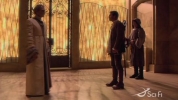Leader of the French OCI acknowledges past relations with Prime Minister Jospin
Leader of the French OCI acknowledges past relations with Prime Minister Jospin
By Peter Schwarz 13 November 2001
Pierre Lambert, the long-standing leader of the French International Communist Organisation (OCI), has for the first time publicly acknowledged that France’s premier, Lionel Jospin, was once a member of his party.
On October 4, L’Express magazine published an interview with Lambert in which he admitted that he had had “political relations with Jospin” and that Jospin “was a Trotskyist”. Lambert did not specify how long this relationship had lasted, but his statements imply that it had only come to an end in 1986 or 1988.
Questioned as to whether the entry of a number of prominent OCI members into the Socialist Party (SP) in 1986 had led to his political break with Jospin, Lambert replied evasively, “Jospin left after a debate. It was his choice. I intend to comment on this period at a late date.” Lambert’s subsequent denunciation of Jospin’s performance in his role as Minister of Education from 1988 indirectly confirmed the interviewer’s observation that Lambert had only become Jospin’s political adversary that year.
According to Lambert, the French prime minister had spent over 20 years in the OCI and had worked for more than 15 years as an OCI member inside the Socialist Party—13 years as part of its national leadership and five as general secretary. As revealed this summer in an interview with Boris Fraenkel, his political advisor at the time, Jospin joined the OCI in 1964 and entered the Socialist Party shortly after its foundation in 1971.
In another interview with the news radio station LCI on November 5, Lambert said that Jospin had joined François Mitterrand’s organisation with his help “around 1971 and 1972-as did others, too ... He went into the Socialist Party with my consent. He was a member like any other and had a particular job to do.”
Lambert denied that Jospin was a “mole”: “I don’t think that Jospin was a mole in the Socialist Party; he joined because of a particular brand of politics espoused by François Mitterrand: the break with capitalism. Then they (the Socialist Party) did something else. That’s their problem, not mine.”
Lambert’s comments confirm the analysis of the World Socialist Web Site in an earlier article about Jospin’s past: that in 1971 the OCI was following a political line “that no longer had anything in common with the ideas of Leon Trotsky and was able to accommodate the aims of François Mitterrand without any difficulty”.
Lambert, now 81-years old, has long been considered the mentor of people who later made a career in the Socialist Party. The OCI spawned many of Jospin’s closest collaborators, including Jean-Christophe Cambadélis, the party’s second most important man. Lambert also enjoys close personal relations with leading figures from Force Ouvriere, the right-wing trade union split-off that emerged from the Stalinist dominated CGT, for which he works as a full-time official.
Moreover, he met regularly with government representatives in his capacity as trade union official, as he admits in the interview with L’Express: “As a responsible trade union official, I used to meet government ministers. It also happened that I participated in negotiations on behalf of my trade union in the Elysée (the headquarters of the French president)”. Despite rumours to the contrary, he denies ever having met Jacques Chirac, the current president.
However, Lambert always keeps in the background of public events—an exception occurring in 1988, when he ran as candidate for the presidential office under his real name, Pierre Boussel. The interview with L’Express is only the second he has ever given to a mainstream newspaper. Recently he announced the publication of a book, planned for the spring of 2002, in which he intends to comment on the various periods of his life. The book will appear directly before the presidential election and—as Lambert at least hints—will contain further revelations about Jospin, who will most likely challenge the incumbent Chirac.
Lambert, a son of Russian immigrants, was born in Paris in 1920. At the age of 14, he joined the communist youth organisation, from which he was soon to be expelled. He entered the Trotskyist movement four years later. In 1952 he took over the leadership of the Communist Internationalist Party (CIP), known as the OCI from 1968 to 1981.
Towards the end of the 1960s, the OCI turned away from the perspective of the Trotskyist movement and in 1971 formally broke with the International Committee of the Fourth International, to which it had belonged until then. It became an important political platform of support for Mitterrand, who was advocating the “unity of the left”—an alliance of the Communist and the Socialist Parties—and who finally won the presidential election in 1981.
The OCI only relinquished its support for Mitterrand at the end of the 1980s, when he fell into widespread disrepute owing to his right-wing politics. Then it founded the Parti des Travailleurs (PT-Workers Party), a collecting bowl for discontented bureaucrats who for one reason or another had failed to make a career in the Socialist Party or the trade unions.
Although the OCI dissociated itself from a revolutionary perspective long ago, it is certainly noteworthy that a man, who worked for an organisation claiming to be Trotskyist for a great part of his life, now stands at the head of the French government and could possibly assume the post of head of state from 2002. Jospin’s experience in left-wing politics is required in order to keep increasing social and political tensions under control and to help dispel any threat to the ruling class.
Other leading representatives of the French establishment have also come forward to confess that they were former Trotskyists. Edwy Plenel, chief editor of Le Monde, published a biography titled Secrets of Youth, in which he writes passionately about his “Trotskyist” past: “Trotskyism as an experience and a heritage will always remain part of my identity; not as a programme or a project, but rather as a state of mind, as a conscious method of criticism in relation to changing perspectives and mental focusing, in relation to political defeats and loyalties.”
Plenel was not a member of the OCI, but of the Pabloite League of Revolutionary Communists that had already abandoned the perspective of the Fourth International in 1953. His allegiance to the French state is indisputable, as is Jospin’s. Le Monde is a flagship of the French bourgeois press and was one of the most important supporters of Mitterrand during the 1980s. That its editor-in-chief now puts himself forward as a Trotskyist is an expression of the attempt to garner support from left-wing circles for the crisis-ridden French establishment.



No comments:
Post a Comment